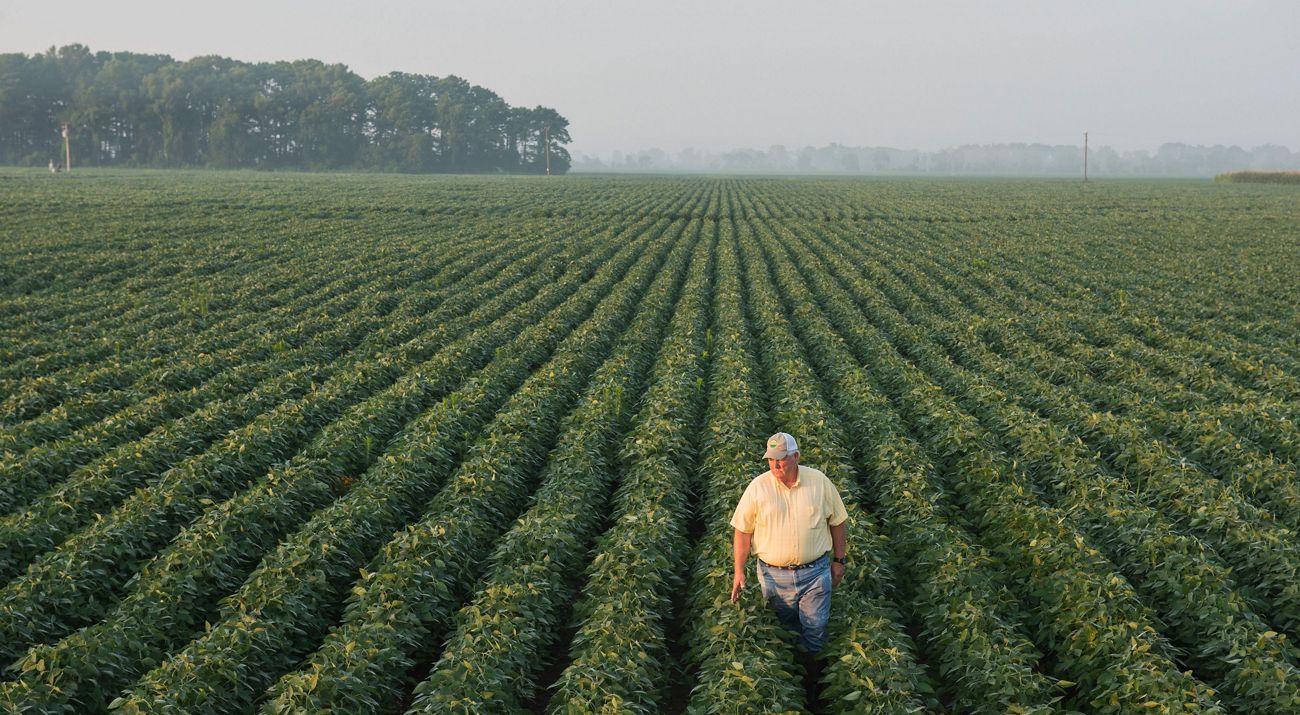
You can increase the long-term environmental sustainability of your land when you ensure that your farmland soil is healthy.
Soil is healthy when it functions as an ecosystem that sustains plants, animals and humans.
Increased crop yields, improved water quality, enhanced groundwater recharge, reduced greenhouse gas emissions – these are just a few of the long-term benefits achieved through healthy soil.
Implementing a suite of common soil health practices on your land today could mean that by 2050, each acre of your farm could decrease soil runoff into waterways, increase water capacity, and reduce geenhouse gas emissions.
How healthy is your soil?
Your farm operator implements practices that affect soil health every day. What is your farmer doing to improve the soil on your land?
You can talk to your farm operator about implementing simple soil health practices.
For more information on soil health and how to discuss the benefits of soil health practices with your farmers, email farmland@tnc.org.
Do you have farmland in Indiana, Illinois, or Iowa?
These local resource sheets will help you find financial and technical assistance, peer support, and management services that are specific to your state.
Read more about the benefits of soil health.
Tenant Farmer Relations and Farmland Leases
Communicating your conservation goals for your farmland to farmers that rent your land is a critical step to improving soil health. It is likely that your farmer has basic knowledge of cover crops and other soil health best management practices. Even more importantly, conversations with your farmer are an opportunity for you to gain knowledge of how your farmland is managed and the opportunities that exist. A well thought out annual or multi-year lease agreement can also help formalize expectations around soil health and other management decisions.
Below are resources from our project collaborators that can provide a starting point for these important conversations:
Landowners Starting Conversations
Ag Lease 101
Purdue Cash Farm Lease
Soil Health and Cover Crops
Soil health is gaining national attention as a holistic approach to managing natural resources in modern production agriculture. Soil health concepts, however, may have different meanings to a farmer managing crop production, a farm manager who is supervising a farm, and a landowner interested in land asset improvement and performance. Cover crops are one component of a soil health system and can help prevent soil loss, sequester nutrients, and aid in water management. Along with other soil health practices, cover crops can deliver water quality, soil microbiology, and habitat diversity benefits.
Below are resources from our project collaborators that can help provide some context around soil health and its benefits:
5 Questions Landowners Should Ask Farmers
The Case for Soil Health
Modern Cropping Systems